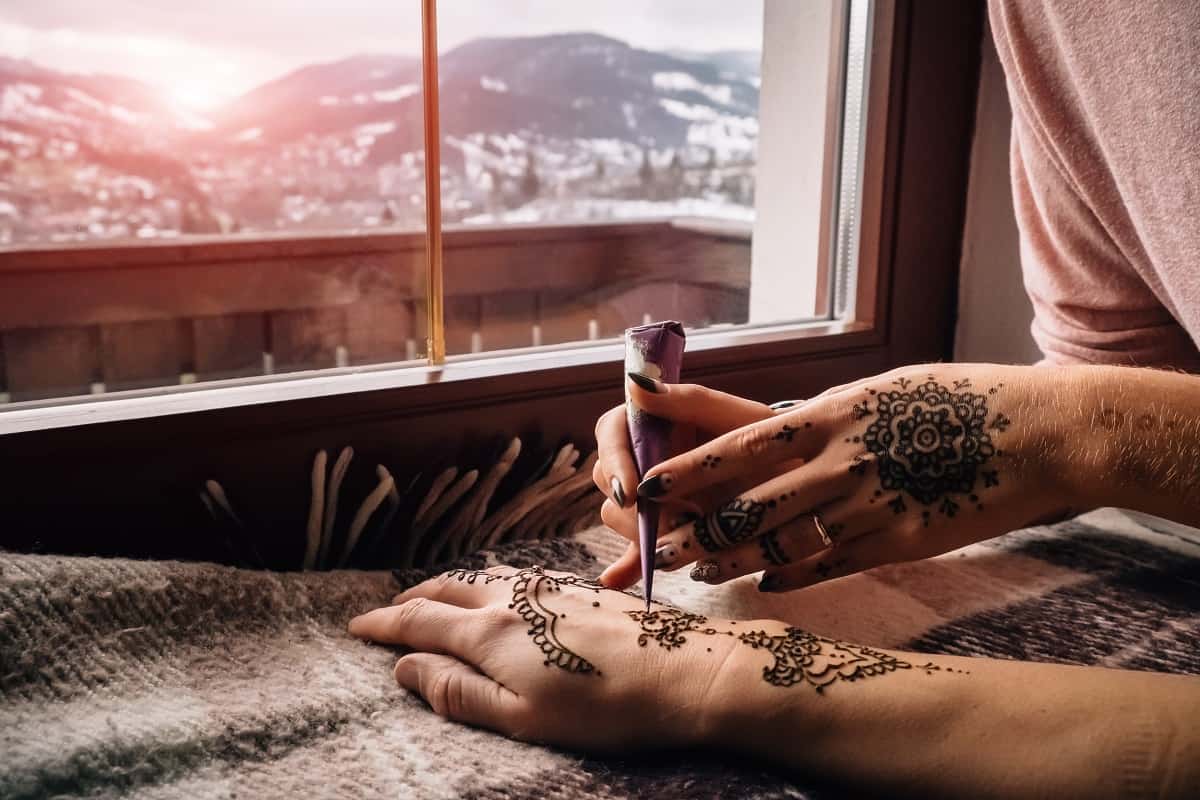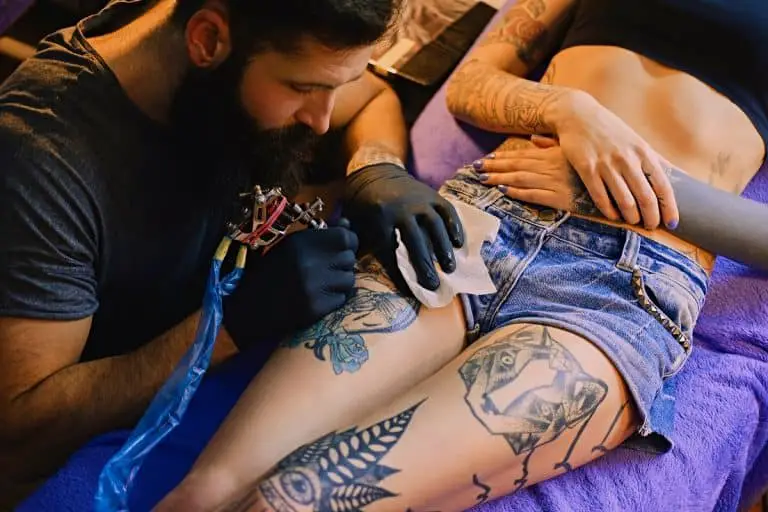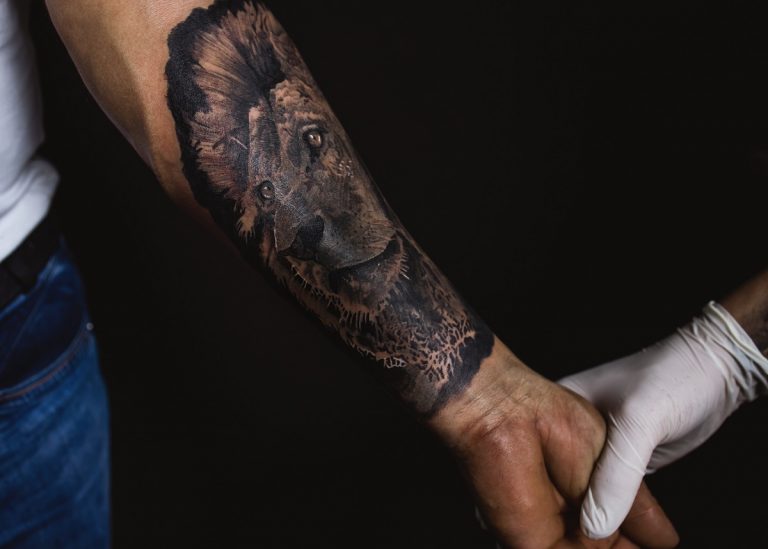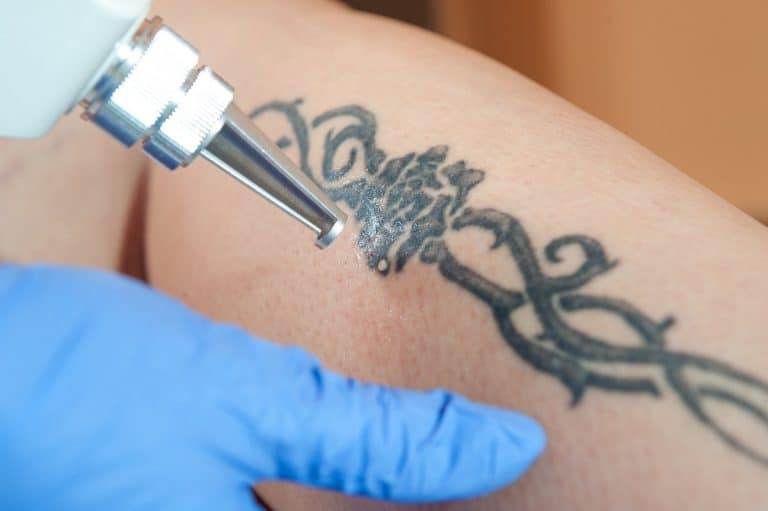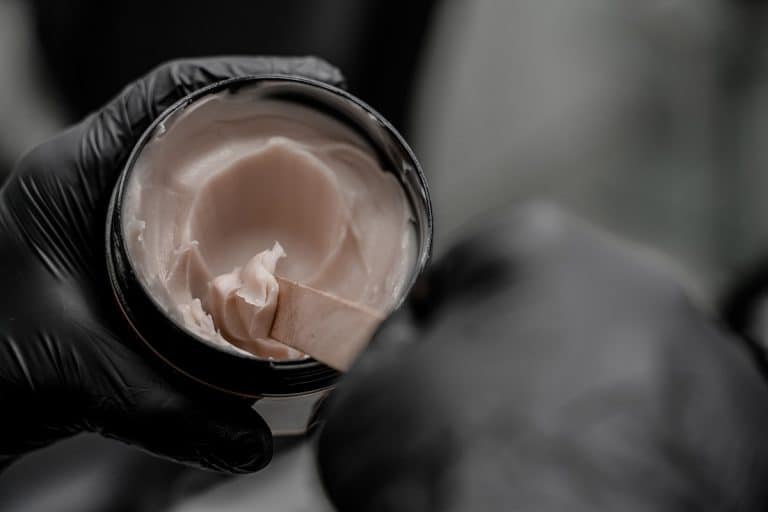Are Temporary Tattoos Safe: Everything You Need to Know!
Temporary tattoos have become rather popular in the past few years. One of the main appeals of temporary tattoos is the fact that they’re, well, temporary. You apply them in a matter of seconds and enjoy them as a tattoo for a short-term period. There is no tattooing hassle and no life-long commitment to body art.
Temporary tattoos are excellent for anyone who wants to experience what it’s like to have a tattoo without fully committing to it. Temporary tattoos are also significantly cheaper, easily accessible, and easily removed.
But, it is not all milk and honey with these tattoos. FDA and health agencies have been warning against certain types of temporary tattoos that are dangerous and risky, especially for children.
So, in the following paragraphs, we’ll see whether temporary tattoos are dangerous, and if there’s a risk of applying such tattoos onto the skin.
Temporary Tattoos and Safety – Everything You Need to Know!
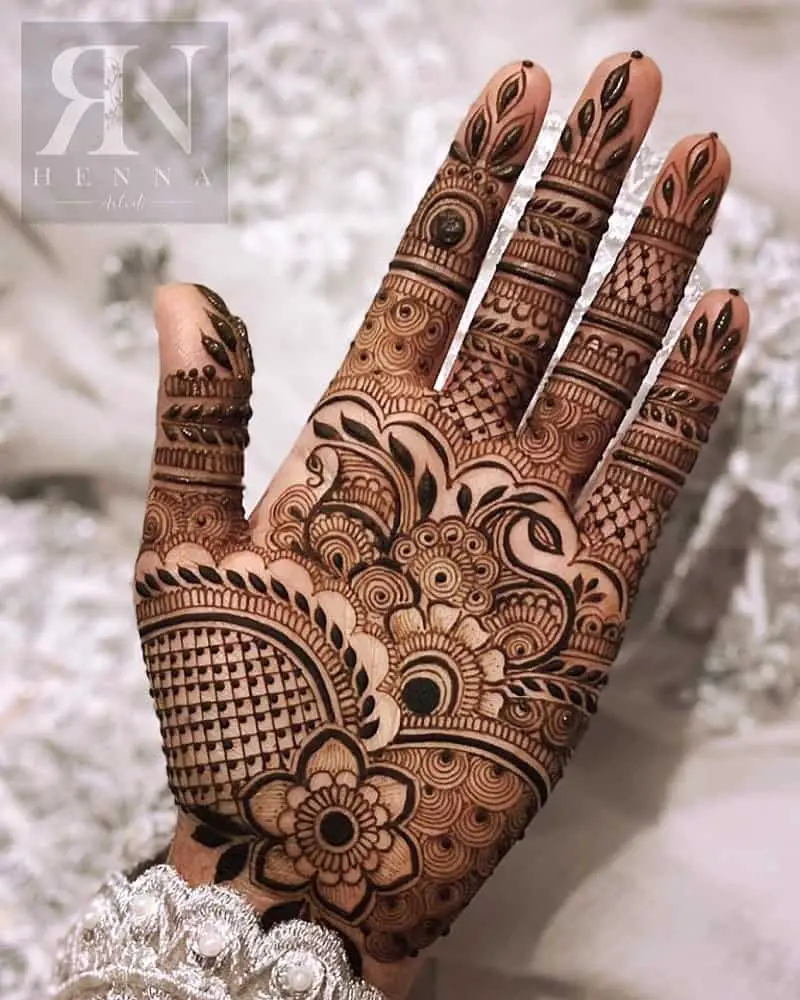
What Are Temporary Tattoos?
- Temporary tattoos are temporary image designs placed onto the skin to mimic the real tattoos.
- The temporary designs are generally printed onto a sheet of paper. The design is transferred by applying a bit of moisture and waiting for several seconds for it to develop.
- Temporary tattoos generally last between 7 and 14 days.
- These tattoos can be easily removed with some rubbing alcohol and oil. However, after 7 to 14 days they will start to fade or peel on their own as well.
What Types of Temporary Tattoos Exist?
- Press-on tattoos – these tattoos are simply pressed onto the skin. The design is transferred from a water-permeable paper by adding some moisture. It can take several seconds for the design to transfer and dry on the skin.
- Henna tattoos – henna tattoos are made using a henna paste, which comes from dried and crumbled henna plants. These tattoos are popular around the world, but they are mainly used in South Asia and the Middle East.
- Airbrush tattoos – these tattoos are sprayed onto the skin. This method can be executed by a tattooist who will use a special airbrush machine. These tattoos are by far the most expensive among temporary tattoos, but they don’t last any longer than the low-end ones.
What Are Temporary Tattoos Made Of?
Temporary tattoos (or press-on tattoos) are made from the following ingredients;
- Polymers – temporary tattoos are generally made from synthetic polymers, which include synthetic rubber, nylon, silicone, and others. Polymers can also be natural, in which case they’re obtained from wool, silk, amber, and cellulose. Polymers are generally very accessible and cheap materials that can be easily chemically manipulated.
- Varnishes – when we say varnishes, we mean spirit-drying and generally removable varnishes. These contain drying oil, resin, and thinners. Acrylic varnishes are known to dry upon water evaporation, which is the case in the majority of temporary tattoos.
- Colorants – a colorant is a substance added to change the color of an item, material, or surface. Colorants can be classified as pigments or dyes, and they can be added to paints and inks. In the case of temporary tattoos, they’re added to emphasize the color of the tattoo as it develops on the skin.
Even though these ingredients may seem intimidating, they’re all sold legitimately in the U.S. and used as approved ingredients by the U.S. Food and Drug Administration or the FDA. As such, they can be used in cosmetics and products with direct dermal contact, like temporary tattoos.
But, what about temporary tattoos made of henna? What kind of ingredients does henna paste really contain?
Organic and 100% natural henna contains dried and crumbled henna plants. That’s it! It is generally reddish or brownish, which is the main telltale sign the henna is made from organic and natural ingredients.
However, there is a type of henna that contains different ingredients; black henna. This type of henna is completely unnatural and made from artificial and chemical ingredients.
Black henna contains;
- Paraphenylenediamine or PPD – this is a chemical that is generally allowed for use in limited amounts. It is often added to hair dyes. However, some people add it to the regular henna to make the henna tattoos (or henna hair dye) black. Because henna pre-mixed pastes don’t generally feature an ingredients list, there is not knowing how much PPD is in black henna, but it is believed to be more than it is allowed.
So, Are Temporary Tattoos Safe?
According to the FDA, temporary tattoos may be safe for the general population, but in some cases, that can cause some adverse effects. Such effects often manifest as;
- Skin redness,
- Blisters,
- Raised and oozing lesions
- Loss of skin pigmentation
- Increased sensitivity to sunlight
- Permanent scarring
In such cases, one often has incredibly sensitive skin or skin conditions. Either way, it is essential to seek medical care.
It is important to mentions that the adverse effects may not occur immediately upon using a temporary tattoo. In the majority of cases, the adverse effects occurred between 2 to 3 weeks later.
However, when it comes to temporary tattoos made from black henna, the general health-related opinion is much more strict and serious.
Black henna is nowadays marketed instead of traditional, natural henna. The black henna contains, as we mentioned, the chemical PPD, and its amounts in black henna are not regulated. Such henna can also contain just hair dye and no henna at all, in some cases.
However, when it comes to black henna and PPD, we cannot emphasize how dangerous this can be for everyone using this henna for a temporary tattoo!
The main reactions to black henna and PPD include;
- Tingling and burning skin
- The feeling of discomfort
- Severe redness of the skin
- Severe blistering of the skin
- Swelling of the area where black henna was applied
- Permanent skin damage and scarring
- Severe infections
The majority of people who have used black henna for a temporary tattoo have experienced chemical burns and serious allergic reactions, alongside the aforementioned adverse effects. It is also important to mention that neither black nor pre-mixed henna is approved by cosmetic and on-skin use by the FDA. These products should be avoided even if they’re sold in reputable stores.
Pre-mixed henna pastes are also known to contain ingredients like silver nitrate, carmine, disperse orange dye, chromium, and pyrogallol. All of these ingredients can cause serious allergic reactions, health problems, chronic inflammatory reactions, and late-onset allergic reactions as well.
So, NEVER buy pre-mixed or black-labeled henna!
Which Temporary Tattoos Are Safe?
Unless you have sensitive skin or a skin condition, you can use temporary tattoos obtained from high-end, reputable sellers, like the Inkbox for example. However, even if you do not experience skin issues, overuse of temporary tattoos can make your skin highly sensitive over time, and later on cause skin irritations and allergic reactions.
But, which temporary tattoos are safe for everyone to use?
According to Scientific American, people who want to get a temporary tattoo but want to avoid any adverse effects and health issues should try getting an airbrush tattoo. These tattoos are sprayed onto the skin over a stencil. The sprayed ink is FDA approved and considered a safe cosmetic ink.
Airbrush tattoos are very easy to removes as well; all you need is some rubbing alcohol or coconut oil.
However, the type of airbrush tattoos used for decorating textile and clothing should NOT be used on the skin. These types of airbrush inks or paints contain allergenic and toxic ingredients. So, when you go to a tattoo artist to do an airbrush tattoo, make sure to check what kind of ink they’re using.
Another thing one can use for a safe temporary tattoo is natural, 100% organic henna powders. These powders do NOT contain any additives and chemicals and are required to be mixed with some water. The henna powders come from dried and crumbled henna plants and leaves, which are safe for use on skin, hair, and materials like wool or leather.
It is also important to mention that the FDA does NOT approve any of the temporary tattoos. The FDA only approves some of the ingredients and color additives used for cosmetic purposes!
The Bottom Line
Temporary tattoos are an excellent way to experiment with body art without the life-long commitment of a real tattoo. However, just because a tattoo is temporary doesn’t mean it will be safe and risk-free. People with sensitive, easily-irritable skin or a skin condition can experience serious health issues and adverse effects when using temporary tattoos.
However, you should stay away from black henna tattoos and tattoos made using pre-mixed henna, even if your skin is perfectly fine and resistant.
We also do not recommend frequent use of press-on temporary tattoos. At first, they might not cause any adverse effects, but by exposing your skin to temporary tattoos, you can cause allergic reactions with a later onset.
Read More:
- Safe, non-toxic plant-based temporary tattoos made with 100% high-definition printing for a realistic look without the pain
- Easy to apply and remove - just stick for 20 seconds then take off
- Set includes 5 sheets with 17 fun, delicate designs like hearts, cats, smiles, suns, moons, and more
- Waterproof and long-lasting - stays on up to 2 weeks of wear
- Fashionable for women, men, girls and boys
- Place on arm, wrist, neck, leg, finger, waist, foot and more
- Great for parties, birthdays, and showing your unique style

